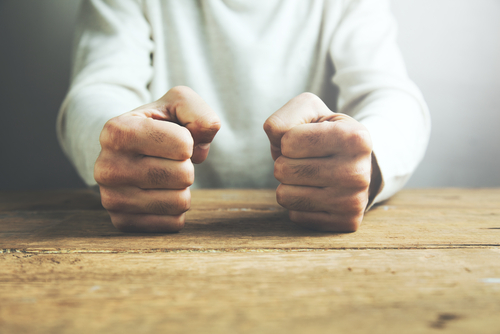Our society has become more open towards mental illness and the challenges that so many of us face – yet there are still many instances in which either our loved ones or ourselves may be battling with a condition we didn’t even know we had. The American Psychiatric Association (APA) reminds us that in many […]
A few years ago, addiction recovery writer Holly Glenn Whitaker shared her story of utilizing yoga to boost her own recovery journey on her website, Hip Sobriety. She explained: “[Yoga] turned around my anxiety entirely and within a few months, not only was I panic attack free, but I was also somewhat of a new […]
It typically begins with recreational use. We’re out having fun with a few friends, or we get home from work one day and we want to find a way to wind down. It feels so harmless – after all, we’re not abusing the substance yet and our intentions of using are quite simple. What happens […]
The novel coronavirus (COVID-19) means everyone is isolated from one another. Some have family, others are totally by themselves. If you have an addiction and mental health issues, it can mean becoming even further isolated. With addiction, or in recovery, this can be a dangerous thing. To stay healthy, people need social interaction. Mental health […]
Many different drugs and substances are out there that cause addiction. Some people become addicted to alcohol, other pills, and yet others try multiple things because they give them different feelings from each substance. The reality of addiction is complicated. Viibryd is one drug many may not have heard about but it is a medication […]
It’s not good to bored too much early on when recovering from addiction. Boredom is an opportunity for negative thinking to start creeping back in. It’s also an opportunity to slip back into old habits, whether it’s getting in touch with people who might be a negative influence on your recovery or actually drinking or […]
Addiction treatment programs are not a panacea. They don’t cure addiction but they can help people find hope and healing for the day-by-day walk forward. Knowledge is power when it comes to recovery. Triggers are things that get in the way of recovery, that pop-up and create struggles for people to move on from addictive […]
Loneliness is not healthy for anyone and it’s especially not healthy for anyone recovering from addiction or mental illness. Loneliness has been linked to greater risk of health problems, depression, and early death. No one wants to be lonely but it’s not always easy to know what to do about it. Here are some suggestions […]
Getting plenty of quality sleep is one of the best things you can do for your mental health. Many studies have found that too little sleep can lead to more feelings of anxiety, depression, and even suicidal thoughts. Even modest sleep deficits can lead to poor concentration, less self-control, poor emotional regulation, and other cognitive […]
Everyone gets angry sometimes. Anger is a normal reaction to being attacked or being treated unfairly. It can even be healthy if you use it to motivate you to make positive changes. However, dealing with anger constructively is hard. Too often, we lash out or act impulsively. This can have consequences from alienating friends and […]
















